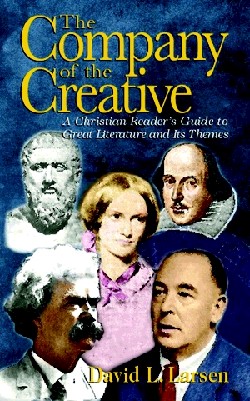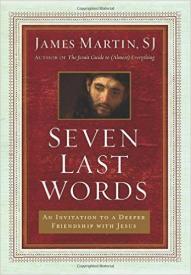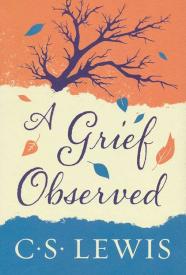Company Of The Creative
$39.99
A History of Biblical Preaching from the Old Testament to the Modern Era) contends that in the modern world “casual television and junk reading dilute the content of the mind…and the interior life has become bloated with malnourishment.” In addition, he says, many Christians believe that the Bible contains all the truth they need about the world, so they do not read beyond the Bible. The author maintains, however, that “all Christians need to read broadly, deeply, and copiously.” He asserts that reading is vital to an engagement of the mind with serious issues of faith and culture. Reading, he notes, opens us to insights about issues and people; it stimulates the imagination and introduces us to beauty. In a series of insightful chapters, Larsen provides short, thematic summaries of more than 500 thought-provoking works of fiction, poetry, drama and biography that incite the imagination. He arranges the chapters according to historical period; for example, in “Identifying Our Assets from the Middle Ages,” Larsen ranges over Augustine, Jerome, Dante, Aquinas, Bernard of Clairvaux, Beowulf, Chaucer and the Arthurian legends. In each of his summaries, the author is attentive to the lessons that Christians can take from these writings. Such interpretive lenses sometimes cloud Larsen’s summaries, however. For instance, he remarks that “the actual state of Willa Cather’s spiritual life is questionable…and whether she had truly come to terms with God at her death is a matter of conjecture.” Such remarks fail to consider the power of the writing and turn readers away from the very fiction that Larsen urges them to read. While his book is an admirable attempt to recover the importance of reading for the Christian life, Larsen’s comments are often too narrow to be helpful.
in stock within 3-5 days of online purchase
SKU (ISBN): 9780825430978
ISBN10: 0825430976
David Larsen
Binding: Trade Paper
Published: January 2000
Publisher: Kregel Publications
Print On Demand Product
Related products
-
Mothers And Daughters Of The Bible Speak
$26.99God always keeps His promises, but not always in the way we expect….
“Have faith” is a phrase we hear all the time. But what does it actually look like to live it out? In The Mothers and Daughters of the Bible Speak, Shannon Bream examines the lives of biblical women to see how God’s plans can turn our worlds upside down. She tells the story of Jochebed, a mother who took enormous risks to protect her son, Moses, from Pharaoh. Could Jochebed have imagined that God’s actual design for her son involved flight into exile and danger? And yet this was all part of the master plan to deliver Israel from slavery. Another biblical mother, Rebekah, made terrible choices in an attempt to ensure her son’s place in history. And a daughter, Michal, struggled to keep her faithless father, Saul, from sin, while battling pride in herself.
Through these stories, Shannon explains the intimate connection between faith and family–and how God’s unexpected agenda can redefine the way we think about family. Not all of these mothers and daughters in the Bible were paragons of virtue. Like us, they were human beings who faltered and struggled to do their best. While some heard God’s voice, others chose their own paths. Through the lens of their imperfections, we can see how God used their stories to bring about His divine plans. He’s still doing the same work in our lives today.
The Mothers and Daughters of the Bible Speak shows that faith is more often a twisting road than a straight line. Yet, as the stories of biblical families attest, at the end of these journeys lies greater peace and joy than we could ever imagine.
Add to cart4 in stock
-
7 Last Words
$18.99Based on his talks at New York’s St. Patrick’s Cathedral on Good Friday 2015, the New York Times bestselling author and editor at large of America magazine offers a portrait of Jesus, using his last words on the cross to reveal how deeply he understood our predicaments, what it means to be fully human, and why we can turn to Christ completely, in mind, heart, and soul.
Each meditation is dedicated to one of the seven sayings:
*”Father, forgive them, for they do not know what they do.”
*”Today you will be with me in Paradise.”
*”Woman, this is your son” . . . “This is your mother.”?
*”My God, my God, why have you forsaken me?”?
*”I thirst.”?
*”It is finished.”?
*”Father, into your hands I commend my spirit.”With the warmth, wisdom, and grace that infuse his works, Father James Martin explains why Jesus’s crucifixion and death on the cross is an important teaching moment in the Gospels. Jesus’s final statements, words that are deeply cherished by his followers, exemplify the depth of his suffering but also provide a key to his empathy and why we can connect with him so deeply.
Add to cart1 in stock
-
Goodnight Moon (Anniversary)
$18.99SKU (ISBN): 9780060775858ISBN10: 0060775858Margaret Brown | Illustrator: Clement HurdBinding: BoardsPublished: September 2005Publisher: Harper Collins Publishers
Add to cart2 in stock
-
Grief Observed
$17.99Written by C. S. Lewis with love and humility, this brief but poignant volume was first published in 1961 and courageously encounters the anger and heart-break that followed the death of his wife, an American-born poet, Joy Davidman. Handwritten entries from notebooks that Lewis found in his home capture the doubt and anguish that we all face in times of great loss. He questions his beliefs in this graceful and poignant affirmation of faith in the face of senseless loss.
Add to cart1 in stock

 Our Gift (Figurine)
Our Gift (Figurine)










Reviews
There are no reviews yet.